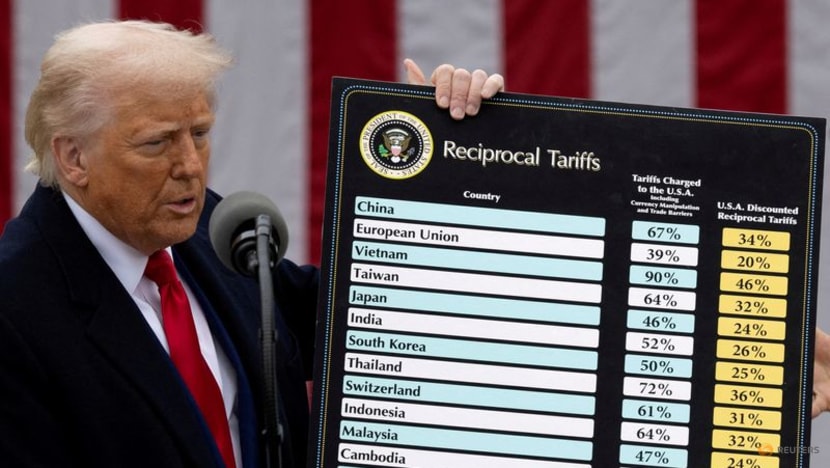- Joined
- Aug 20, 2022
- Messages
- 17,393
- Points
- 113
Xi's Vietnam Trip Aiming To 'Screw' US, Says Trump
ByAlice PHILIPSON
April 15, 2025, 12:36 am EDT
HANOI: China's President Xi Jinping paid tribute to Vietnam's late revolutionary leader Ho Chi Minh on Tuesday (Apr 15), his last day of a trip to Hanoi that President Donald Trump said was aiming to "screw" the United States.
Xi is in Vietnam as part of a Southeast Asia tour that will include Malaysia and Cambodia, with Beijing trying to position itself as a stable alternative to Trump as leaders confront US tariffs.
The Chinese leader called on his country and Vietnam on Monday to "oppose unilateral bullying and uphold the stability of the global free trade system", according to Beijing's state media.
Hours later, Trump told reporters at the White House that their meeting was aimed at hurting the United States.
"I don't blame China. I don't blame Vietnam. I don't. I see they're meeting today, and that's wonderful," he said.
"That's a lovely meeting ... like trying to figure out, how do we screw the United States of America."
China and Vietnam signed 45 cooperation agreements on Monday, including on supply chains, artificial intelligence, joint maritime patrols and railway development.
Xi said a meeting with Vietnam's top leader To Lam on Monday that their countries were "standing at the turning point of history ... and should move forward with joint hands".
Lam said after the talks that the two leaders "reached many important and comprehensive common perceptions", according to Vietnam News Agency.
On the final day of his visit, Xi laid a red wreath emblazoned with his name and the words "Long live Vietnam's great leader President Ho Chi Minh" at the late leader's mausoleum in central Hanoi.
He is also due to attend the launch of the Vietnam-China Railway Cooperation, which will help manage an US$8 billion rail project – announced this year – to link Vietnam's largest northern port city to the border with China.
Xi's trip comes almost two weeks after the United States – the biggest export market for Vietnam, a manufacturing powerhouse, in the first three months of the year – imposed a 46 per cent levy on Vietnamese goods as part of a global tariff blitz.
Although the US tariffs on Vietnam and most other countries have been paused, China still faces enormous levies and is seeking to tighten regional trade ties and offset their impact during Xi's first overseas trip of the year.
Xi will head to Malaysia later on Tuesday and then Cambodia on a tour that "bears major importance" for the broader region, Beijing has said.
Xi earlier urged Vietnam and China to "resolutely safeguard the multilateral trading system, stable global industrial and supply chains, and open and cooperative international environment".
He also reiterated Beijing's line that a "trade war and tariff war will produce no winner, and protectionism will lead nowhere" in an article published on Monday in Vietnam's major state-run Nhan Dan newspaper.
China and Vietnam, both ruled by communist parties, already share a "comprehensive strategic partnership", Hanoi's highest diplomatic status.
Vietnam has long pursued a "bamboo diplomacy" approach – striving to stay on good terms with both China and the United States.
The two countries have close economic ties, but Hanoi shares US concerns about Beijing's increasing assertiveness in the contested South China Sea.
Source: AFP/lh


